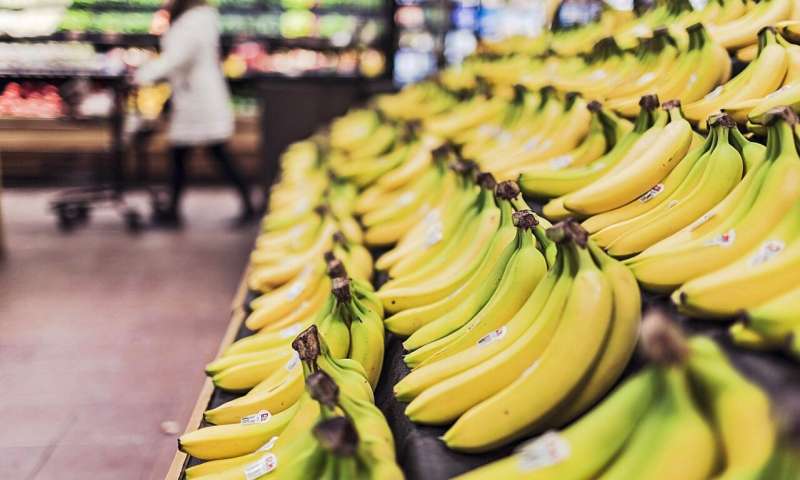If freshly bought bananas are stored in a full fruit
basket, then they won’t stay yellow very long. Just a few days
later, the crooked fruits take on a brownish color and are more
likely to be thrown away than be eaten. The reason for this rapid
ripening is the chemical ethylene. The gaseous plant hormone not
only functions as a messenger substance within an individual fruit,
but also influences other specimens nearby. Ethylene triggers a
real chain reaction by stimulating the production of (more)
ethylene in other plants and fruits. And more ethylene means faster
ripening. Therefore, fruits like apples that emit particularly high
levels of ethylene cause premature ripening in, say, banana, which
shows a particularly strong reaction in response to the hormone.
When storing this foodstuff together, rapid ripening can become an
undesirable side effect. Fruit cannot be stored as long—which not
only leads to losses of food at home in the fridge, but also in the
entire supply chain from the importer to the wholesale and retail
trade.




